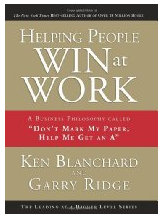Understanding Change as a Game We Play
By Jeri T Denniston, Chief Marketing Strategist, Denner Group International
Takeaways: Change is one of many games we humans play. Games have similar characteristics, including purpose, rules, time boundaries, spatial parameters, roles, and prizes.
 In his book, Leading at the Edge of Chaos: How to Create the Nimble Organization, Daryl R. Connor describes change management as yet one of many games humans play. All our games, he says, have certain characteristics in common:
In his book, Leading at the Edge of Chaos: How to Create the Nimble Organization, Daryl R. Connor describes change management as yet one of many games humans play. All our games, he says, have certain characteristics in common:
- Purpose – they all have a point regardless of whether they are frivolous or serious.
- Rules – they all have explicit or implicit directions for how to play. Implicit may be the unspoken rules around friendship, for example.
- Time boundaries – some are brief and others take a long time. Personal development, for example, is a life-long process.
- Spatial parameters – some games are played in a small physical space, such as your computer, or in a large workspace, like offices or the global marketplace
- Prizes – all games have rewards of one kind or another, whether it’s a promotion and salary increase or a ranking as winner
- Intensity – some games are fun; others serious, such as competing for a hard-get customer
- Emotional reactions – some games are pleasurable, such as achieving financial success, or mere obligations, such as paying taxes.
- Prescribed number of players – some games are played with older or younger people, or they may be solitary, such as meditation or prayer.
- Intentionality – participation in some games is conscious, such as dating, while in others it may be totally unconscious, such as intimidating coworkers.
- Language – most games use terms or symbols to convey specific meanings that are only relevant within a specific context, such as might be created when a team comes together to focus on an innovative new product or idea.
- Roles – most games include roles everyone plays; there’s always a leader and other types of participants, such as spectators, rookies, experts, or artists.
Managing Change
If we look at managing change from the perspective of gamesmanship, we see that this is just another game we play, and it incorporates all the elements described above. As the pace of change continues to increase, organizations find they must be continually changing to keep up or stay ahead of the competition. This requires leaders at all levels who are nimble and understand how to play this game.
Because businesses and organizations of all types are continually changing and have been doing so “for as long we humans have been building hierarchical structures”, says Connor, the game of managing change has become more and more sophisticated. A new paradigm has been born that forces us to look at this managing change game from a new perspective.
According to Connor, paradigms are created as a response to people trying to make sense of the world around them. So as the world has continued to change and humans try to understand the implications of these changes, new questions and challenges arise, creating a new paradigm.
Ten years ago, for example, few people anticipated the impact the smart phone would have on daily lives. Yet society globally has become more and more mobile, and people are doing more shopping and internet browsing from their phones rather than their desktop computers. This has, and will continue to create, dramatic implications for businesses of all types. It has implications for broadband service providers and cable companies. It has implications for organizations selling their products and services online. It has implications for retailers with physical store locations as shoppers scan QR and bar codes in the store to find better pricing elsewhere.
Yet, despite this consumer trend, fewer than 5% of all websites today are mobile phone friendly, let alone tablet friendly. This is a new paradigm shift in the global marketplace game.
As leaders we need to stay abreast of these trends and consider the implications they have for our own businesses. Are we still trying to use the old set of rules to play in this new sandbox? Or are we adapting and changing the rules of the game to meet these new challenges?
Mobile smart phones and tablets have altered the global marketplace. What are you doing to meet this new challenge in order to play in this new game space?

